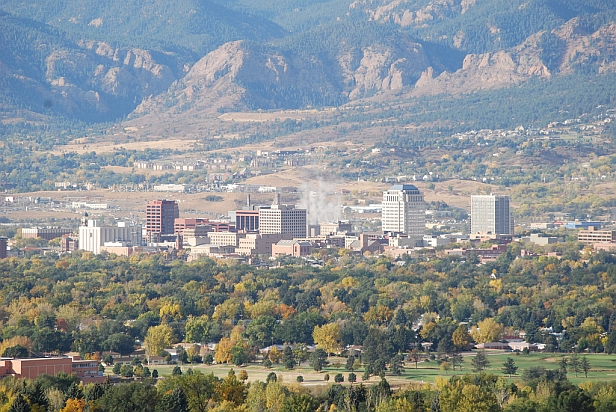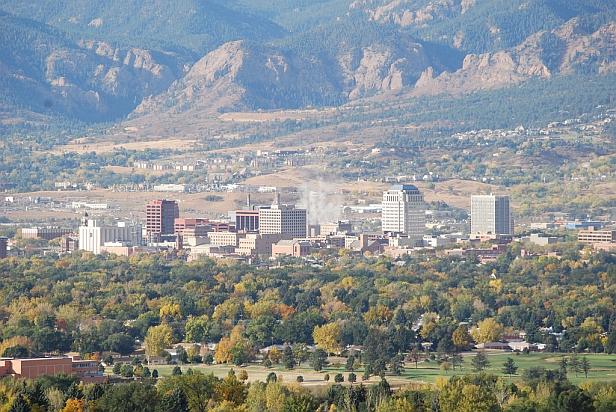 Courtesy Jasen Miller via FlickrCivic-minded urbanist types like to experiment with collective projects. Apparently, so do people who don’t like civic projects, taxes, public parks, pools, police officers, or firefighters. Famously anti-tax Colorado Springs launched an astounding experiment this year:
Courtesy Jasen Miller via FlickrCivic-minded urbanist types like to experiment with collective projects. Apparently, so do people who don’t like civic projects, taxes, public parks, pools, police officers, or firefighters. Famously anti-tax Colorado Springs launched an astounding experiment this year:
More than a third of the streetlights in Colorado Springs will go dark Monday. The police helicopters are for sale on the Internet. The city is dumping firefighting jobs, a vice team, burglary investigators, beat cops — dozens of police and fire positions will go unfilled.
The parks department removed trash cans last week, replacing them with signs urging users to pack out their own litter.
Neighbors are encouraged to bring their own lawn mowers to local green spaces, because parks workers will mow them only once every two weeks. If that.
Water cutbacks mean most parks will be dead, brown turf by July; the flower and fertilizer budget is zero.
City recreation centers, indoor and outdoor pools, and a handful of museums will close for good March 31 unless they find private funding to stay open. Buses no longer run on evenings and weekends. The city won’t pay for any street paving, relying instead on a regional authority that can meet only about 10 percent of the need.
Call it place-unmaking. Towns across the nation are watching, as many of them are facing budget shortfalls as severe as Colorado Springs’.
The Atlantic Wire has an interesting roundup of reactions to the project, though most are fairly ideologically predictable. Conservative blogger and Colorado Springs resident Michelle Malkin writes, “Self-reliance. Privatization. Thrift. Fiscal accountability. The liberals in Denver and Washington could learn something from our Mountain West spirit if they could just get over their Colorado Springs Derangement Syndrome.”
Eric Martin writes, “When one of the two major political parties wages tax jihad and demonizes government and its appendages … people no longer grasp the extent to which government services actually ensure a certain standard of living, not to mention economic opportunity.”
Others note that Colorado’s second-largest city continues to receive plenty of taxpayer money through the U.S. Air Force Academy, four other military installations, and heavyweight defense contractor Lockheed Martin.
It’ll be fascinating (and disturbing?) to see how this works out in the coming months and years. That will require Actual Reporting on how the slashed public services affect residents of all social classes. Here’s hoping there are journalists left to cover it.




